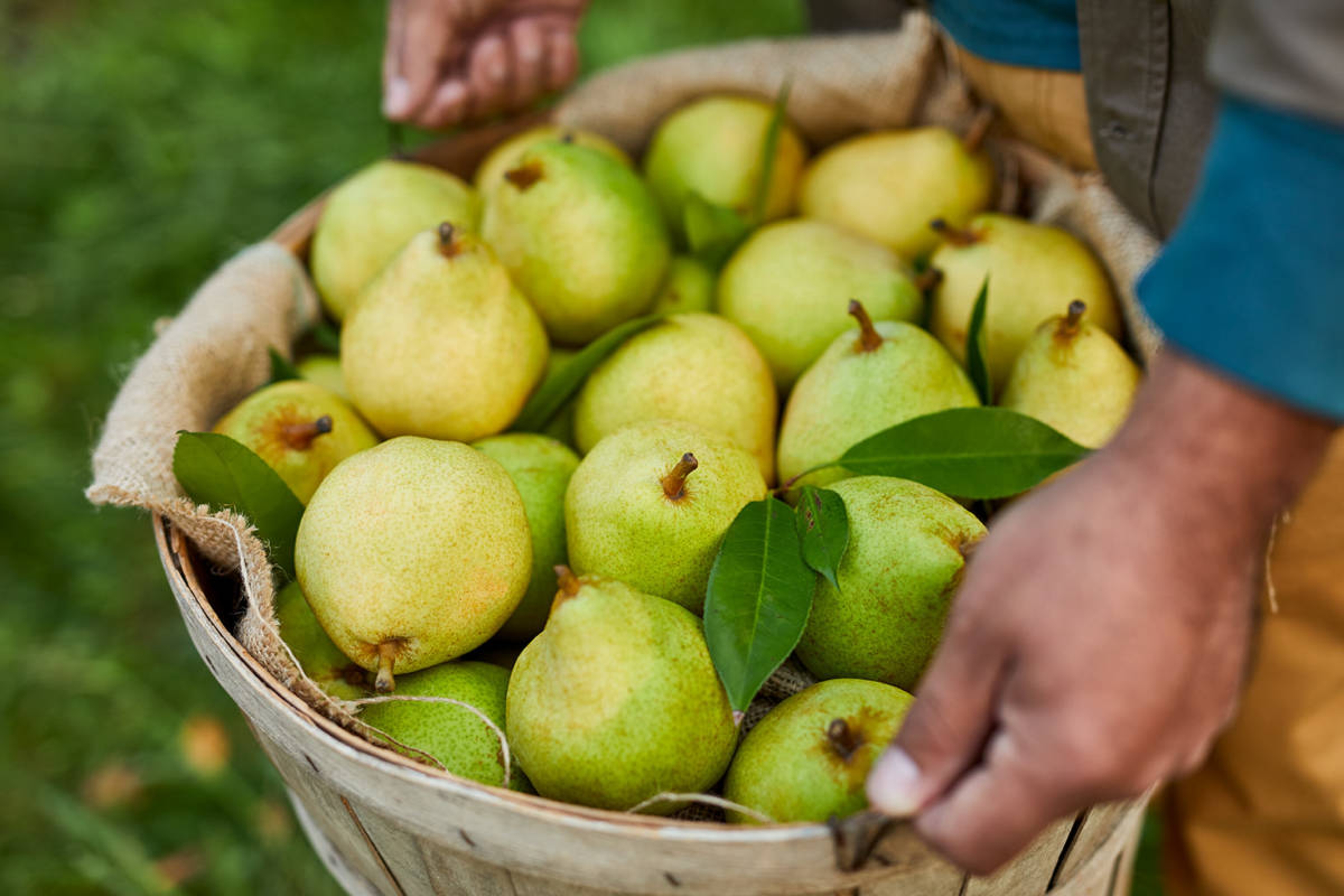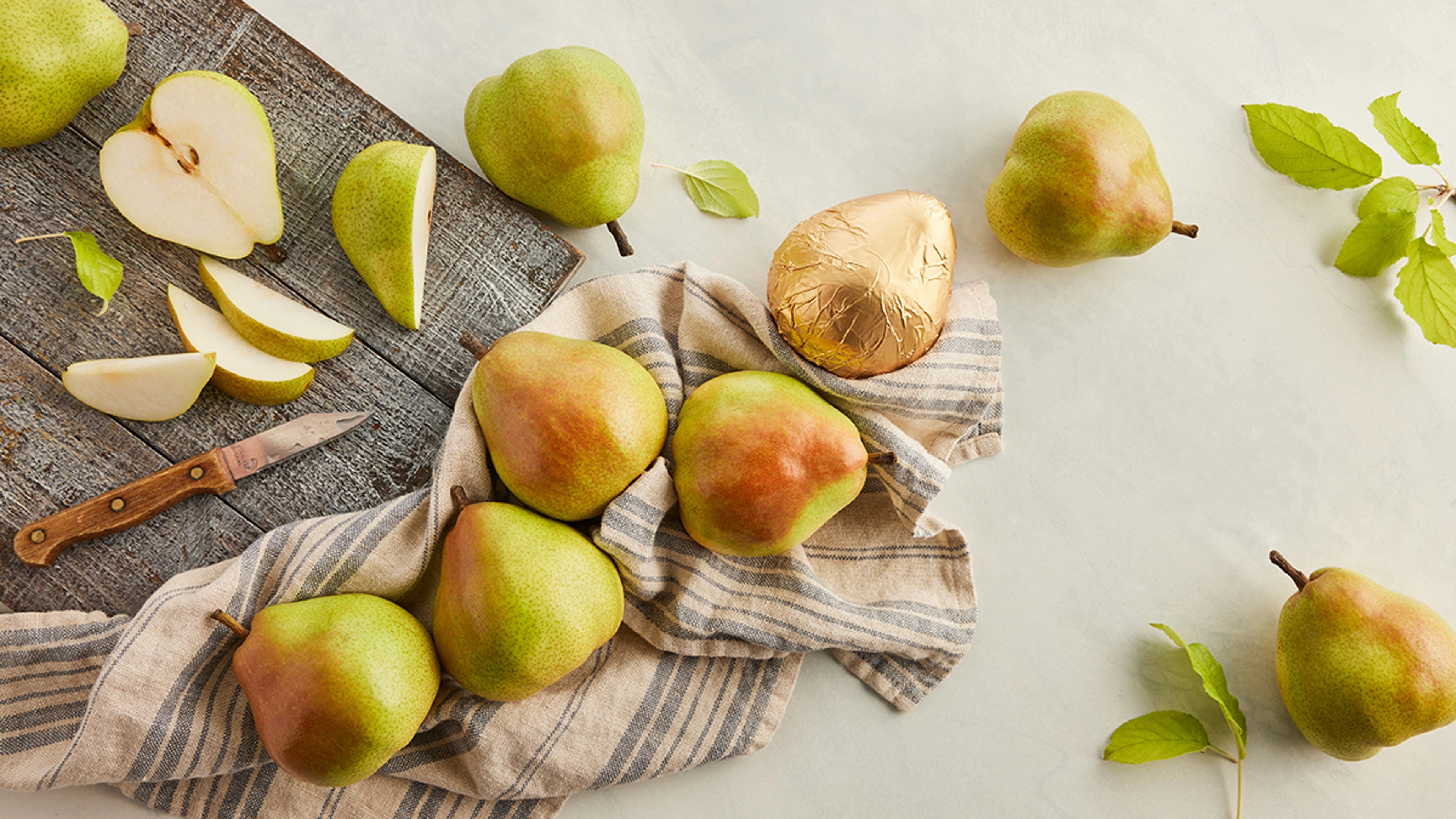How to Ripen Pears
Harry & David has been slinging pears since 1934. They know all the tricks to ripening this sweet, juicy, delectable fruit. Here are seven tips.
Sep 05, 2024
Harry & David was built on pears. This sweet, juicy, and delectable fruit is where the company's roots were planted all the way back in 1934. And after 90 years of hand-picking and hand-packing millions of fruit, it's safe to say Harry & David knows a few things about how to ripen pears.
Pears are notoriously tricky when it comes to ripening, as they can go from rock hard to mush in just a matter of days (sometimes hours). Who hasn't had the experience of leaving a pear on the counter for one minute too long and returning to something that resembles the consistency of baby food? With these seven tips, you'll have perfect pears to share with friends and family. And even if they do get a little soft, you can still use your overripe pears in any number of pear recipes.

1. Cold storage
Unlike a lot of other tree-borne fruits, pears ripen after being picked and not while on the branch. Pears have a fairly narrow ripening stage, so it is best to store them in a cool, dry place. Once the pears are harvested, growers will generally take care of the chilling process for you.
2. Timing
Not all pears ripen at the same speed. Whereas Bartlett pears should be chilled at 30° F for two to three days, Bosc and Comice (pronounced ko-MEESE) pears should receive the same treatment for two to six weeks. When you receive your pears from Harry & David, they have already gone through the bulk of the chilling process and will usually be ready to eat in two to three days.
Important tip: Remove any rotten fruit during the chilling process, as one bad pear can spoil the whole bunch.
3. Ripening temperatures
Once your pears have been stored for the appropriate amount of time, remove them from the cold and put them in a location that is between 65° and 75° F. According to the Oregon State University Extension, Bartlett pears ripen in four to five days, whereas Bosc and Comice pears need five to seven days to reach peak ripeness. Given that this is simply a guide and not a law (though we're looking into if making it a law is possible), the best way to detect whether your pear is ready to eat is the thumb test.
4. The thumb test
Check your pear daily for ripeness by applying gentle pressure to the neck or stem-end of the pear with your thumb. If the pear yields to pressure, it's ready to eat. Could it get any easier?

5. The banana trick
If you don't have a lot of time to wait for your pears to ripen, use the tried and true banana trick. Place your pears in a paper bag or an enclosed area with a ripe banana or apple. Ripe apples and bananas give off a gas called ethylene that triggers the ripening process in unripe pears. You gotta love science!
6. Put your pears together
Ripe pears give off ethylene gas too, so storing them together with your un-ripe pears in a sack or bucket will cause the rest to ripen. If you listen closely, you can hear them talking to each other, offering words of encouragement. “You can do it, Bill! Ripen like you've never ripened before!"
7. Slow it down
If you're not quite ready to enjoy your pears, you can easily slow down the ripening process by storing them in the refrigerator. Yes, it's that simple.
If all else fails, overripe pears are still viable in the kitchen. Just peel and chop them, and you have the perfect beginning to any number of pear recipes, from a pie to a cake, smoothie, and other fresh delights.
.svg?q=70&width=384&auto=webp)













